“This post contains affiliate links, and I will be compensated if you make a purchase after clicking on my links.”
We’ve all heard of the benefits of eating raw honey, but did you know that your dogs can also benefit from this delicious treat?
The benefits of raw honey have been known for centuries. Hippocrates, the “Father of Medicine” even prescribed honey as a medication. Petroglyphs over 7,000 years old depict people collecting honey from hives.
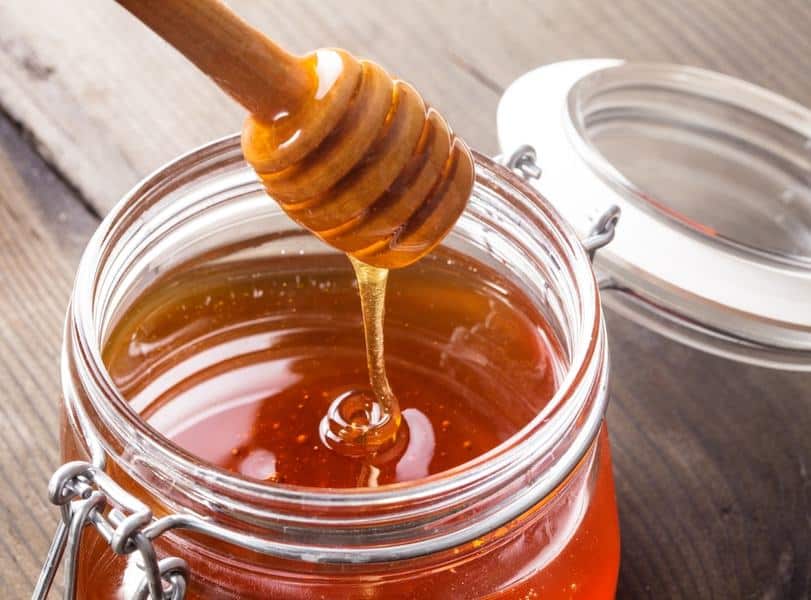
The Many Benefits of Honey for Dogs
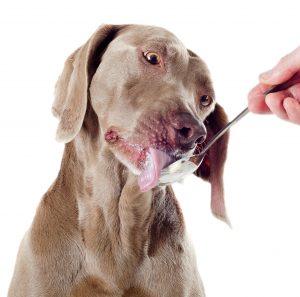
Raw honey is used for many conditions in people and pets. It’s been shown to reduce healing time of skin conditions, relieve seasonal allergies, improve digestive health and even provide your dog a natural source of energy.
Vitamins, Minerals: Raw honey is naturally rich in minerals (like calcium, potassium, manganese, copper and many others) as well as vitamins A, B-complex, C, D, E, and K.
Antioxidants: Honey is also filled with flavonoids, which are natural antioxidants. These help slow the aging process, prevent illness by, and preserve food. They serve an important role in pet health.
Simple Sugars: Raw honey contains simple sugars, like glucose and fructose. These are known as monosaccharides which are more easily absorbed than complex sugars (like the disaccharides and polysaccharides often found in processed sugar, starchy veggies, and other sources).
Kennel Cough: Just as raw honey provides relief to humans suffering from a cough or cold, it may also help your dog find relief from the dry, unproductive cough caused by bordetella or “kennel cough”. Honey helps coat the throat and helps to relieve coughing .
Allergy Relief: Raw honey is perhaps most well known for it’s ability to relieve allergy symptoms. Honey works in much the same way as getting an allergy shot – minute exposure helps make you immune to specific allergies. K9 Honey contains raw pollen from 9 geographic regions to make it effective for your pet no matter where you’re located in North America!
Improved Digestion: Raw honey doesn’t ferment in your dog’s belly, which helps to calm and coat their stomach lining.
Wound Care: There are many studies exploring the benefits of raw honey, Manuka honey and medical honeys for their roles in healing. Thus far, honey has proven to play a significant role in wound care by decreasing the time it takes to heal while preventing infection. Some scientists are even exploring the role of raw honey in treating antibiotic-resistant infections like MRSA, VRE, MDR-TB, and CRE.
Senior Pets: Many reports are emerging that show feeding dogs raw honey may improve mobility in arthritic dogs.
With the incredible benefits of raw honey for dogs in mind, K9 Honey created the first honey for dogs! Blended with pollen from nine geographic regions, the honey helps alleviate allergy symptoms in dogs (no matter where they live or travel).
How much honey can you give your dogs?
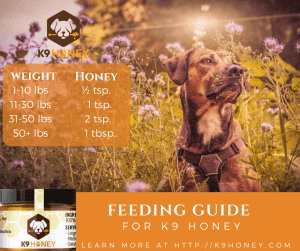
Just like any other treat or pet food, the key to feeding honey is in moderation. Too much honey can result in obesity or dental problems. But, when you stay within recommended guidelines, most veterinarians and nutritionists agree that it can be very beneficial.
The recommended serving sizes are as follows:
1-10 lb dog ½ tsp per day
11-30 lb dog 1 tsp per day
31-50 lb dog 2 tsp per day
50+ lb dog 1 tbsp per day
Are There Dogs Who Shouldn’t Have Honey?
You should always discuss new supplements, treats, or foods, with your veterinarian before giving anything new to your pets. While honey is largely regarded as one of the safest foods out there, you should at least be aware of the following:
Young Puppies: It’s generally recommended that young puppies skip this delicious treat until they are about 3 months old. This is due to raw honey possibly containing spores from an anaerobic bacteria and some believe that it could transmit botulism to young pets who don’t have a fully developed digestive system.
Diabetic Dogs: The jury is still out on whether diabetic dogs can have raw honey. While some believe that it slowly increases the insulin levels, and is therefore fine to give in small amounts, others believe that it’s not safe. Talk to your veterinarian about the best options for your pets.
Dogs Allergic to Bees: If your dog is allergic to bee stings, then you should be aware that there is a (very remote) possibility that raw honey may result in skin lesions or oral ulcers. Again, you should discuss this with your veterinarian.
To learn more or to purchase K9 Honey, click here. Or purchase from Amazon.com.


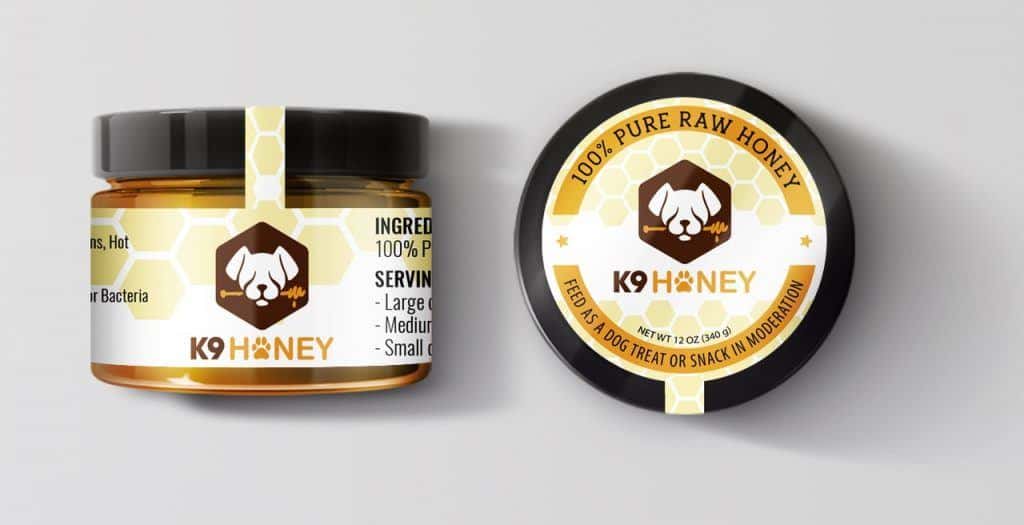







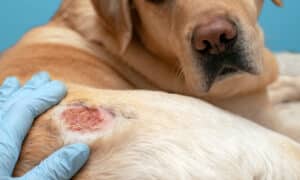








[…] Raw Honey: Honey is widely-acclaimed for its medical benefits. It is naturally rich in vitamins A, B-complex, C, D, E, and K and minerals such as calcium, potassium, manganese, and copper. (Source: Dogington Post) […]